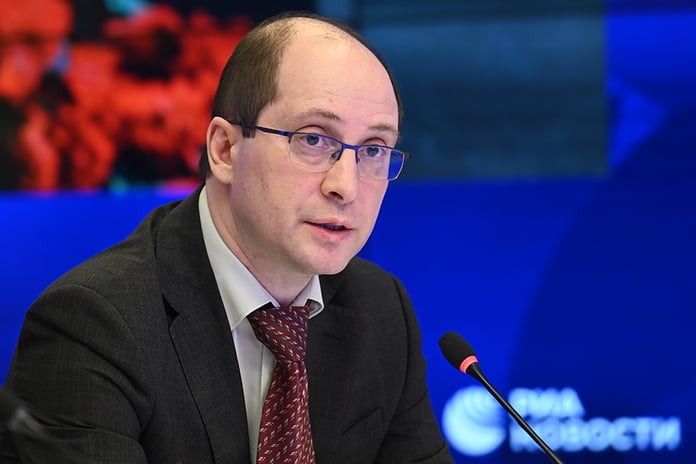– Ruslan Grigoryevich, probably, there is no country closer to Russia in terms of perception of a common difficult history than Belarus. How is cooperation with Belarusian colleagues developing, what are the issues on the agenda?
Ruslan Gagkuev: In recent years, especially in the past, declared the Year of Historical Memory in Belarus, the scale of cooperation between Russian and Belarusian scientists has increased significantly. Many new sources have been published and common research topics arise regularly. Some steps have also been taken in terms of developing common approaches to central events in our common history. Five years ago, on behalf of the Ministry of Education and Science of Russia and the Ministry of Education of Belarus, a bilateral working group was formed to prepare a series of educational tools under the general title ” Russia and Belarus: pages of a common history.” The first of them, devoted to the events of the Great Patriotic War, was published under the leadership of academicians Efim Pivovar and Alexander Kovalenya. It is already available in electronic format.
– Who came to the forum? What topics are of interest to historians of both states today?
Ruslan Gagkuev: More than a hundred scientists from all over the Union State worked in Moscow. Among them are historians from Minsk and Grodno, Gomel and Polotsk, Vitebsk and Mogilev. As for general topics, their range is very wide – from the ethnogenesis of the old Trinitarian Russian people to the post-war restoration of the Byelorussian SSR. Particular attention was paid to the development of Belarusian studies and Russian studies, that is, to the analysis of foreign studies on the history of our countries. A useful discussion also took place on the topic of teaching history in schools.
– Is it planned to create manuals or common manuals?
Ruslan Gagkuev: Of course. The development of common educational materials on history is one of the areas envisaged by the plan of cooperation between the Ministry of Education of Belarus and the Ministry of Education of Russia until 2024.
– Are there periods in the past of our countries about which Russian and Belarusian historians, say, are actively discussing?
Ruslan Gagkuev: I will start with the fact that, perhaps, the history of the Great Patriotic War is most substantially studied today. And this is not surprising, if we take into account the importance of the common memory of the victory of the Soviet people in the self-consciousness of Russians and Belarusians. Last year, the Belarusian Institute of Sociology of the National Academy of Sciences conducted a study confirming that May 9 remains the main national holiday of the Republic for the vast majority. Over the past five years, VTsIOM has received similar results, measuring the attitude of our citizens towards the celebration of Victory Day.
Considering the huge losses suffered by the Byelorussian SSR – we are talking about three million Belarusians – our colleagues are very interested in studying the period of occupation, preserving the memory of the victims of the genocide of the Soviet people. Russian archives actively support Belarusian researchers – we literally work hand in hand here. Recently, within the framework of the educational project “Without a prescription period”, a multi-volume documentary collection devoted to the BSSR was published, and even before that, about ten years ago, a portal about the villages burned during the war years became very famous in Belarus. It was developed with the participation of the Historical Memory Foundation.
Contemporary history is also actively discussed today, mainly topics related to Eurasian integration. Last year, through the Russian State University of Humanities, a joint Alexei Gromyko Center for Eurasian Studies was opened at the Belarusian-Russian University in Mogilev. In the autumn, an appropriate international forum will be organized on its site.
– How do historians respond to the challenges of individual Western politicians who reshape history to fit the present?
Ruslan Gagkuev: Of course we have to react. There are also questions to which interest is deliberately heated. For example, the Polish uprising of 1863, which affected part of the Belarusian lands. A detailed political biography of one of the leaders of this speech – Kostus Kalinovsky – was written two years ago by Alexander Dyukov. I start from the fact that in the study of such stories it is fundamentally important to rely on the sources at our disposal and on objective facts. It’s no secret that the current rulers of Poland are actively imposing their own interpretation of Belarusian history, pressuring Belarusian scientists and using various propaganda tricks. Therefore, it is fundamentally important for us to support our conscientious Belarusian colleagues. We don’t have and haven’t had any taboo subjects – if the discussion is conducted in a constructive, scientific way, we are always ready to discuss our shared history in its entirety.
Read the Latest Science and Technology News Today on The Eastern Herald.


